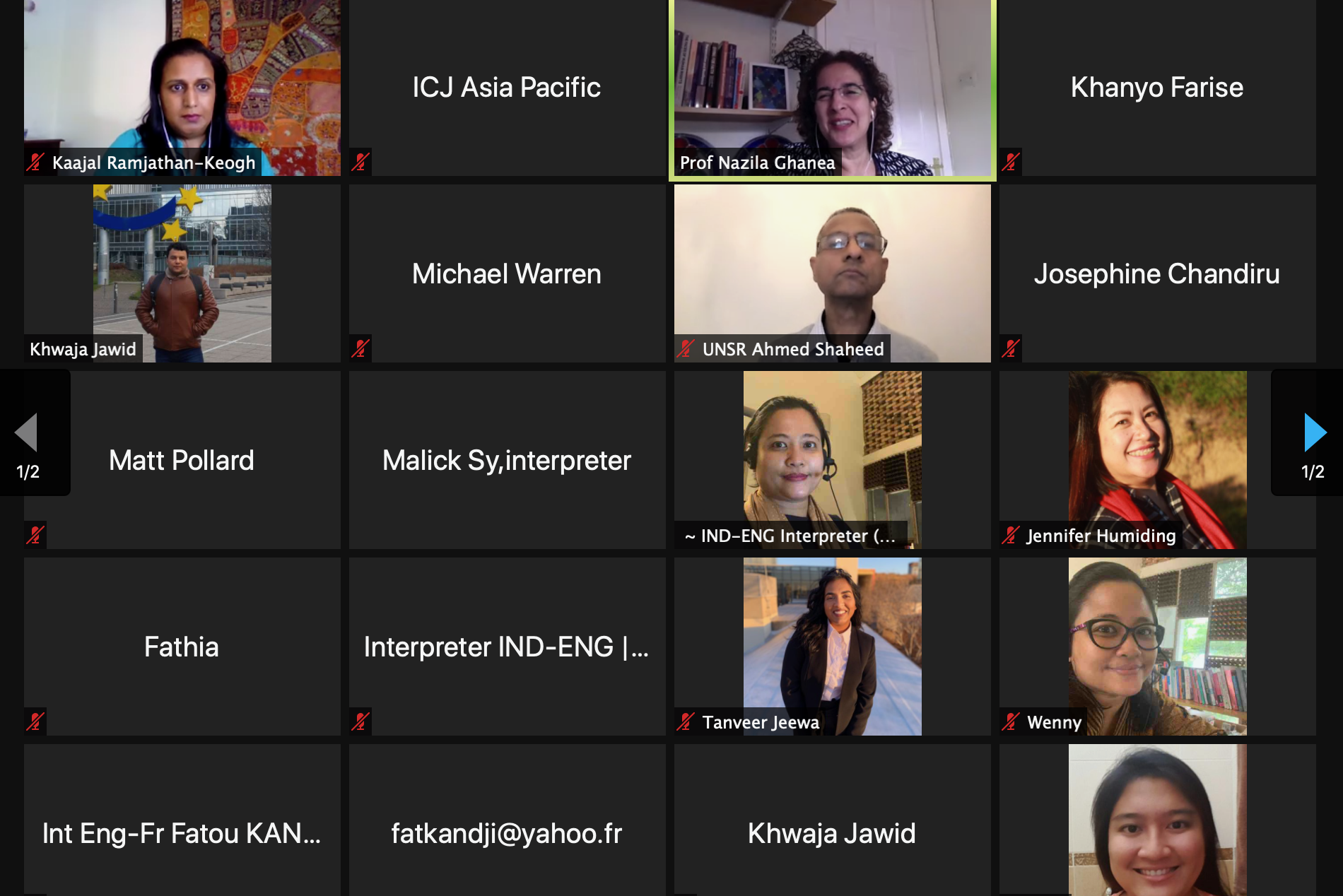On 21 and 22 October, the ICJ and Cordaid held a webinar series aimed at tackling the challenges of protecting and promoting women’s human rights and access to justice for women in the context of religious and customary laws in operation around the world.
At its global 2019 Congress in Tunis, the ICJ identified the problem, concluding that: “Worldwide, increasing attacks on the rule of law have intensified longstanding inequalities and compounded intersecting forms of discrimination against women and girls and persons from marginalized groups. This has limited their enjoyment of human rights and their effective access to justice. Moreover, in many countries, culture, tradition, or religion are being used to justify laws, policies and practices that discriminate against women and girls.”
In light of the obstacles for women, the ICJ together with Cordaid created this webinar platform for an exchange of views and strategies among human rights defenders, justice sector actors and those from the religious community. Participants came from Asia, the Middle East and Africa. Webinar 1 addressed the ways in which custom and religion shape the ability of women to access justice. The meeting also grappled with the perceived clashes between women’s human rights and pathways to justice based on custom and religion.
“Custom and religious preferences are not superior to women’s rights, they operate simultaneously,” said Nazila Ghanea, Associate Professor in International Human Rights Law at the University of Oxford.
Speakers included Professor Nazila Ghanea, Clara Rita Padilla, a lawyer from the Philippines with experience on women’s sexual and reproductive rights, Josephine Chandiru, Executive Director of Stewardwomen from South Sudan, and Claudine Tsongo, Director of Dynamique des Femmes Juristes. They focused on practical subjects, including the persistence of certain religious and cultural practices which have the potential to negatively affect women’s ability to defend their human rights. The session was moderated by ICJ Africa’s director, Kaajal Ramjathan-Keogh.
Webinar 2, moderated by ICJ Commissioner and CEDAW Committee Member, Nahla Haidar, discussed obligations under international human rights law and best practice to ensure access to justice in cultural and religious contexts.
UN Special Rapporteur on Freedom of Religion or belief, Professor Ahmed Shaheed explained that “custom and religious law are, in some countries, used as cover to discriminate against women or to stop them from getting justice. These are not issues which are only present in the global south, they are rampant globally.”
Participants discussed practical measures which could be adopted by States, international organizations and civil society, to eliminate practices which exacerbate women’s inequality. In this regard, Shareena Sheriff from Sisters in Islam based in Malaysia, shared her experience on how they successfully embarked on advocacy to eliminate the harmful practice of Female Genital Mutilation in her country. She explained how Sisters in Islam worked closely with various stakeholders including community members, religious and justice actors to raise awareness on this issue.
Many speakers endorsed the importance of creating platforms such as the webinar to allow different voices from around the world to contribute their experience so as to learn from one another.
Contact
Nokukhanya (Khanyo) Farisè, Legal Adviser (Africa Regional Programme), e: nokukhanya.farise(a)icj.org
Tanveer Jeewa, Communications Officer (Africa Regional Programme), e: tanveer.jeewa(a)icj.org
Watch
The first webinar is available here.
The second webinar is available here.
Read
The report on the Tunis Declaration is available here.
Cordaid, Diverse Pathways to Justice for all: Supporting everyday justice providers to achieve SDG16.3, September 2019, available here.
Download
Universal-ICJ The Tunis Declaration-Advocacy-2019-ENG (the Tunis Declaration, in PDF)
Universal-ICJ Congresses-Publications-Reports-2019-ENG (the ICJ Congresses booklet, in PDF)





